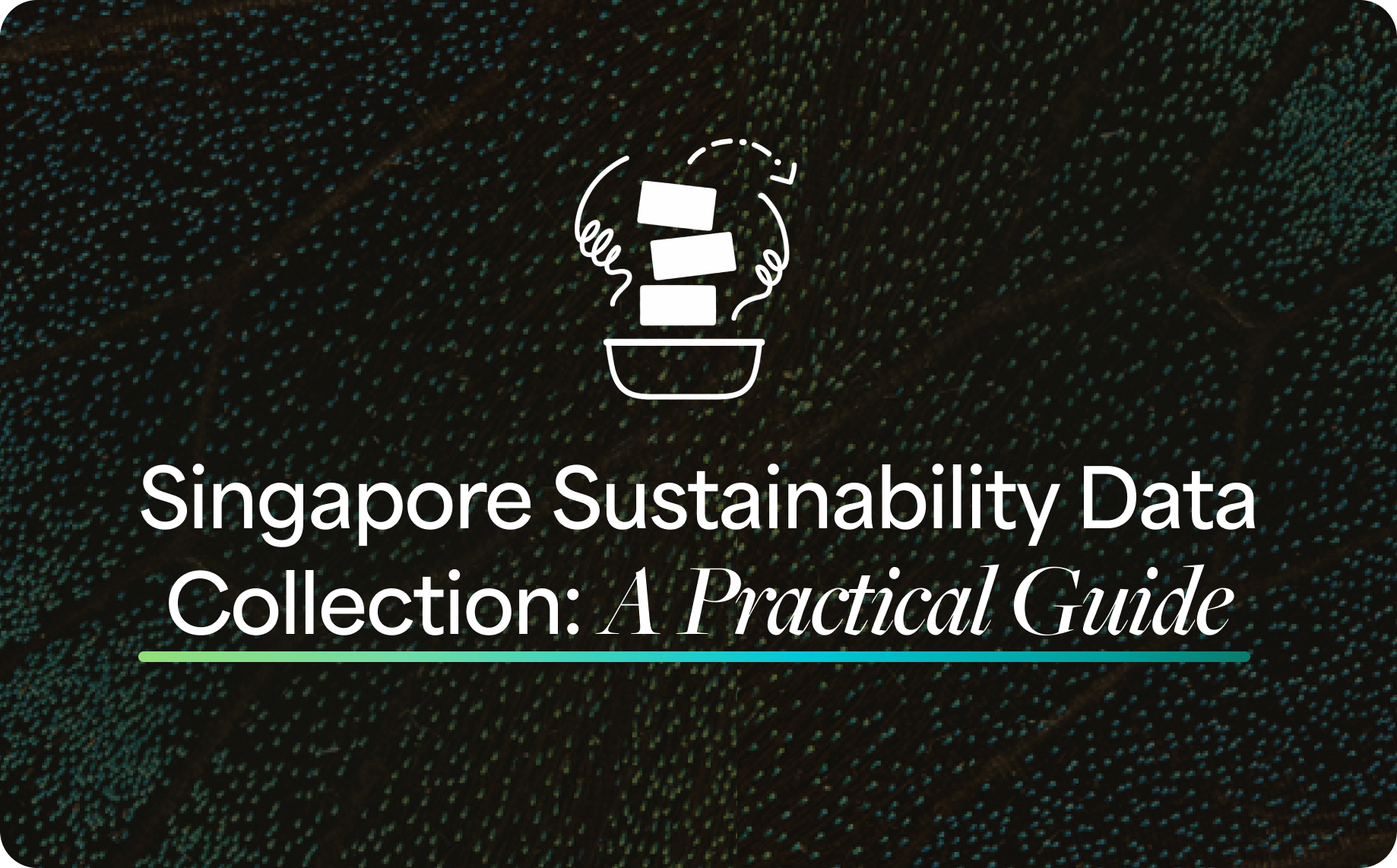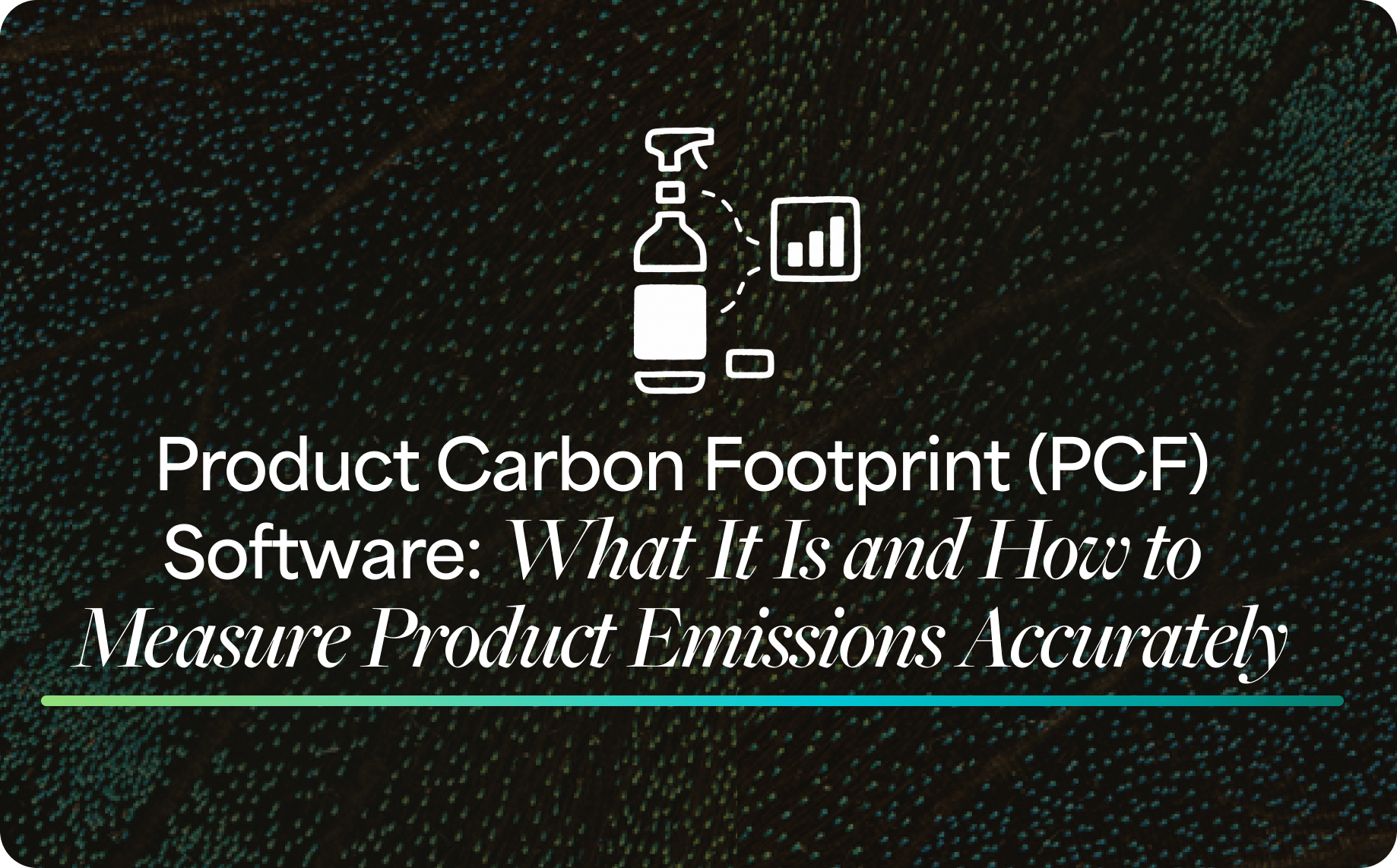Singapore's sustainability regulatory landscape has evolved rapidly, with mandatory climate and sustainability data collection in Singapore requirements becoming a critical compliance and strategic imperative from FY2025.
For companies operating in Singapore, accurate and comprehensive sustainability data collection in Singapore is no longer optional—it's essential for regulatory compliance, stakeholder trust, and decarbonization strategy. The complexity of gathering reliable data—especially for Scope 3 emissions—poses significant challenges.
This article explores the practical challenges specific to Singapore, while highlighting how technology solutions like Unravel Carbon's AI-driven platform can help organizations meet these demands efficiently.
Singapore's Regulatory Frameworks and Deadlines
Singapore has aligned its sustainability reporting requirements with global standards, notably adopting the International Sustainability Standards Board (ISSB) standards.
These ISSB-aligned standards, including climate-related provisions from IFRS S1 General Requirements and IFRS S2 Climate-related Disclosures, form the backbone of Singapore's mandatory climate reporting regime. The Singapore Exchange (SGX) has also integrated sustainability reporting guidelines, recommending listed companies to disclose on 27 ESG metrics mapped to global frameworks.
Read more about recent regulatory updates in Singapore in our recent blog.
Challenges Faced by Singapore Companies in Sustainability Data Collection
A 2023 study found that 79% of Singapore business leaders cite data collection as the most resource-intensive aspect of ESG reporting, with 58% identifying data inaccuracy and poor quality as major obstacles. Despite regulatory phasing designed to ease the transition, real-world challenges persist—from fragmented systems to supplier gaps across Southeast Asia's diverse markets.
Here are the most common hurdles:
- System Integration Complexity: Sustainability data often sits scattered across procurement, operations, facilities management, and finance systems. Bringing this together with financial and operational data for sustainability data collection in Singapore demands significant technical infrastructure and data mapping—capabilities many organizations are still building.
- Supplier Engagement and Scope 3 Data: Collecting reliable Scope 3 data requires collaboration with suppliers who frequently lack reporting capabilities, standardized formats, or emissions accounting knowledge. This is especially challenging for Singapore companies with regional supply chains spanning Southeast Asia. A 2024 Schneider Electric survey revealed that 63% of Singapore businesses have not fully measured supply chain emissions, with only 44% having the necessary tools and infrastructure to do so effectively.
- Data Quality and Completeness: Ensuring data is complete, consistent, and auditable demands rigorous governance. Poor data quality can lead to material misstatements, regulatory non-compliance, and reputational damage.
- Resource and Expertise Limitations: Many organizations lack dedicated sustainability teams or technical expertise to manage complex sustainability data collection in Singapore workflows, emissions calculations, and assurance preparation. The same study found that 70% of Singapore companies still rely on spreadsheets and 60% on manual data entry methods that are time-consuming, error-prone, and difficult to scale.
These challenges can delay reporting, increase costs, and expose companies to regulatory and reputational risks in the backdrop of evolving regulatory requirements.
How Unravel Carbon Addresses Sustainability Data Collection Challenges in Singapore
Technology addresses each of the obstacles outlined above through targeted, measurable capabilities. When selected and deployed correctly, these functions fundamentally alter how organizations gather, validate, and report sustainability data for Singapore regulatory compliance.
1. System Integration Complexity
Bridging System Integration Gaps
Fragmented data systems remain a significant barrier to consistency. Unravel Carbon connects directly to your existing infrastructure, pulling data from disparate locations without manual extraction or rekeying, resulting in faster consolidation and audit-ready records.
- Integrates with ERP systems (SAP, NetSuite), HR platforms (Workday, BambooHR), and utility data sources
- Supports flexible input formats (CSV uploads, APIs, webforms) for seamless data ingestion
- Eliminates transcription errors by tracing all data directly to source systems
- Creates audit trails that document the origin and flow of every data point
2. Supplier Engagement
Automating Data Collection and Validation
Manual data collection introduces error and consumes resources at an unsustainable rate. On the other hand, Unravel Carbon’s Data Collection Agent can support by automating the collection of Emissions and Sustainability data and reducing manual workload
- Automatically sends out emails and notifications to gather emissions and sustainability data from suppliers
- Provides a one-stop hub to track supplier responses and submission status
- Scans through public data repositories to take a first pass in gathering the required data before contacting suppliers directly
Supporting Regional and Multilingual Operations
For organizations with operations and suppliers spanning Southeast Asia, language barriers complicate data collection. Unravel Carbon removes this friction point by allowing regional teams to submit data in their native languages while maintaining consistency in your central reporting system.
- Offers translation support across 70+ languages
- Allows suppliers and regional teams to submit data in native languages
- Maintains data consistency and quality in your central reporting system
- Removes a critical friction point in sustainability data collection in Singapore for dispersed, multilingual supply networks
3. Data Quality & Completeness
Collecting data for Scope 1-3 GHG Emissions and ESG Disclosures
The Unravel Carbon platform provides you easy visibility and tracking of data to ensure you have collected all required data for material Scope 1-3 emission categories and ESG disclosures.
- Calculates Scope 1-3 GHG emissions, and allows you to easily view the completeness of each category at each of your business facilities
- ESG Disclosures feature allows you to track and consolidate ESG metrics according to SGX’s 27 Core ESG Metrics.
Establishing Governance and Audit Readiness
Strong governance prevents data quality issues before they occur. Unravel Carbon provides comprehensive audit trails, approval workflows, and data completeness dashboardsRecords each change, user, timestamp, and impact on reported emissions in permanent audit trails
- Implements approval workflows ensuring only validated data enters final disclosures
- Displays data completeness visibility, showing which records are incomplete or awaiting review
4. Resource and Expertise Limitation
Providing Real-Time Guidance and Support
Rather than requiring staff to consult external documents or escalate questions, users can access contextual assistance directly within the platform. Unravel Copilot provides guidance on ISSB standards, GHG Protocol methodologies, and emissions calculation approaches.
- Delivers contextual assistance on ISSB standards and GHG Protocol methodologies within the platform
- Reduces delays by eliminating need to consult external documentation
- Improves consistency across your sustainability data collection in Singapore processes
- Enhances data accuracy and user confidence through direct access to calculation guidance
Conclusion
Singapore sustainability data collection challenges are significant but manageable with a clear understanding of regulatory requirements and the right technology.
Singapore's phased approach to climate reporting provides companies time to build capability, but proactive preparation is essential. Unravel Carbon's AI-driven platform offers a comprehensive solution tailored to these needs, enabling organizations to meet compliance deadlines, improve data accuracy, and advance their decarbonization goals with confidence.
If your organization is preparing for Singapore's mandatory sustainability reporting and seeking to strengthen sustainability data collection in Singapore capabilities, get in touch with our team via hello@unravelcarbon.com
Frequently Asked Questions
What are the key deadlines for sustainability reporting compliance in Singapore?
Mandatory climate reporting under ISSB-aligned standards begins with Scope 1 and 2 reporting from FY2025 for all SGX-listed companies. STI constituents must report Scope 3 from FY2026, while non-STI companies phase in full ISSB-based reporting from FY2028 (≥S$1B market cap) and FY2030 (<S$1B market cap). External assurance is required from FY2029
How can companies manage the complexity of Scope 3 emissions data collection?
By prioritizing material emissions sources through materiality assessments, engaging suppliers with clear data requests and templates, and using AI-powered platforms that support flexible data ingestion, automated validation, and supplier collaboration tools designed for sustainability data collection in Singapore.
What role does technology play in improving sustainability data accuracy?
Technology automates sustainability data collection, detects anomalies through AI-powered validation, supports governance with audit trails and approval workflows, and integrates multiple data sources, reducing errors, manual effort, and improving compliance with ISSB and SGX standards.
How can AI streamline sustainability data collection in Singapore in line with current regulatory deadlines?
AI agents automate data gathering from internal systems and suppliers, identify data gaps proactively, validate data quality in real-time, and provide intelligent suggestions for corrections, enabling organizations to build audit-ready sustainability data collection in Singapore processes that scale with Singapore's phased reporting requirements.


.jpg)
.jpg)
